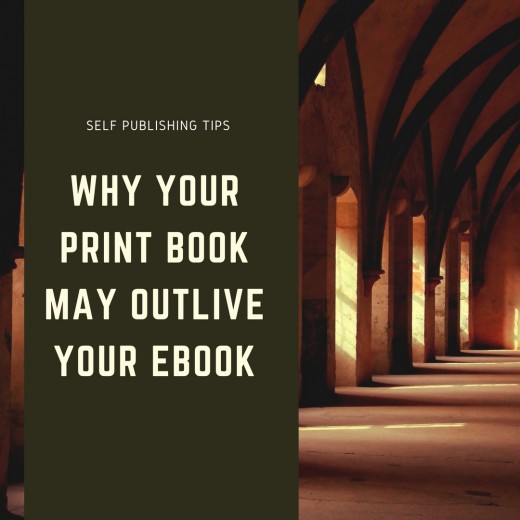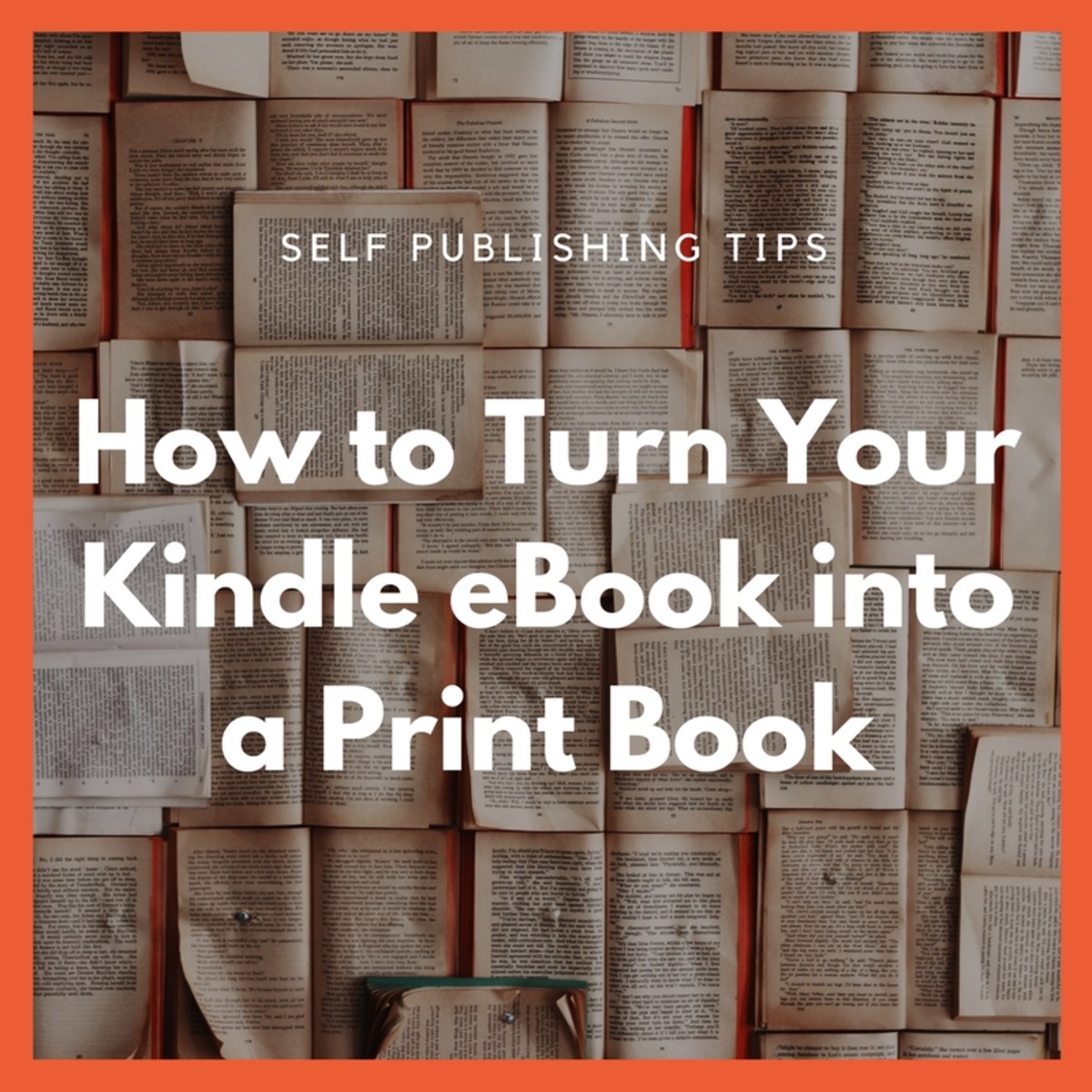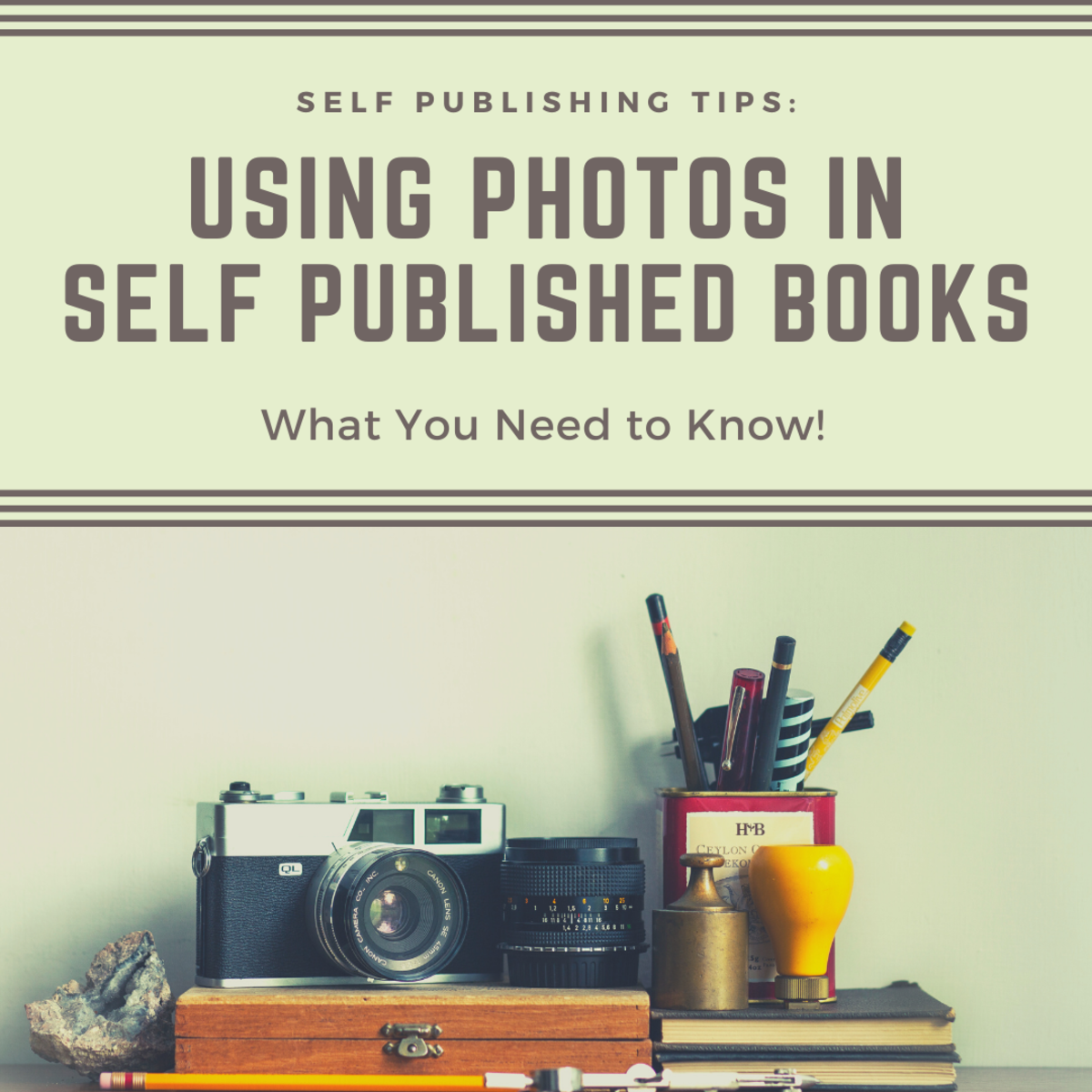- HubPages»
- Books, Literature, and Writing»
- Commercial & Creative Writing»
- Making Money as a Writer
Self Publishing Tips: Why Your Print Book May Outlive Your eBook

In the 1990s, I was teaching adults how to use popular software programs (WordPerfect anyone?). One of the class lectures discussed storage of data. At that time, the 3.5" floppy disk was probably the most recognized storage media and successor to the true "floppy" 5.25" disks. So when I told the class that one day soon we'd be relying on CDs for data storage, they had a good laugh. Personal computers with CD-ROM drives were coming around, but those with drives to "burn" data onto a CD were still in their infancy.
Fast forward to the 2010s, CD (even DVD) read-and-write drives are already quite passé. Everything seems to be headed "to the cloud." In all honesty, the cloud uses media and equipment somewhere... just not right where we are as it had been in the past.
So what does this have to do with you and that book or eBook you're self publishing now? A lot! The sad state of losing intellectual property treasures because they've been stored in or on obsolete media and equipment is discussed in "Northwestern archivists aim to resurrect outdated technology" (Chicago Tribune, October 26, 2015).
Sobering thoughts, eh?
Media for the Millennia
Let's take a step back in time... like a few thousand years.
We can still "read" the stone walls in the pyramids at Giza. Do we understand all of it? Well, we'll leave that to the Egyptologists. But let's think about this: The ebook you may have published on a CD may be inaccessible in 25 or 50 years, simply because we may not have the technology readily available to read it. The messages on the pyramid walls can still be viewed thousands of years later and, barring any physical disaster befalling them, may still be readable thousands of years from now.
Am I suggesting that you start carving your musings on slabs of clay, stone or cave walls? Of course not! But I am suggesting that you think about how you're archiving and offering the written work you've so painstakingly created.
Print Books STILL Work
I encounter many new and even established authors who say, "I just want to do an eBook." I have to question why. Is it because they don't have a high degree of confidence in their work to invest in print books (even though today's Print On Demand technologies make that almost a non-issue)?
If you're vacillating between a print book and an eBook, I'd encourage you to do both simply because print books, if stored properly, can survive decades or longer. As I look on my personal book shelves, I have books that were published and printed in the mid-20th century. And when I was dabbling in antique book collecting, I "picked" books that were 50 or more years old, one was even from the Civil War era.
For authors using Amazon Kindle Direct Publishing as their self publishing platform, another reason to go print AND eBook is to potentially make more sales. This will help meet the needs of readers who read books in multiple formats (like me!). This means extra money for authors.
Publishing in both print AND electronic media, you can satisfy your readers' consumption habits now and when any electronic versions may have become obsolete.
When an eBook May be the Better Choice
Even though publishing both print and eBook versions of a book is financially and technologically more feasible than it's ever been in history, there is one case where eBooks might be a better choice. If you're addressing a topic that may have a very short shelf life, just doing an eBook might make sense, simply because formatting for print can take more time.
For one of my books that addressed a marketing technology topic, I did both an eBook and print book. However, after just a year or two, the regulations regarding that technology were changing to such a degree that the book became dated... almost instantly. The advice, from a marketing standpoint, was still sound no matter what. But in the context of using that technology, it was dead. So I decommissioned that book in both versions. I still have some copies sitting around in storage and I wasted my time creating the print layout. Ack!
When addressing a rapidly changing topic area, assess your investment regardless of whether you do print book, eBook or both.
Things to Consider When Choosing Book Formats
- Evergreen Availability. Is the topic you're discussing in your book evergreen? If your topic will be relevant today and decades from now, choose longer lasting media for your work or produce in multiple media formats.
- Republishing in New Formats. Once your book is done, keep abreast of changes in technology related to book distribution. The introduction of a new reading technology or app may provide you with an opportunity to republish your existing book, creating a "new" offering for your readers.
- Monitoring Your Archived Book Manuscripts. Recently, I was thinking about rewriting a book that I had written when I was teaching business writing skills many years ago. I couldn't find it anywhere! All I could find was some remnant of my work from those days on 3.5" floppy disks. I haven't had a floppy disk drive on a computer in years. Even if I eventually located a disk containing that lost work, will I be able to access it? Probably not. A lost opportunity!
This article is accurate and true to the best of the author’s knowledge. Content is for informational or entertainment purposes only and does not substitute for personal counsel or professional advice in business, financial, legal, or technical matters.
© 2016 Heidi Thorne








